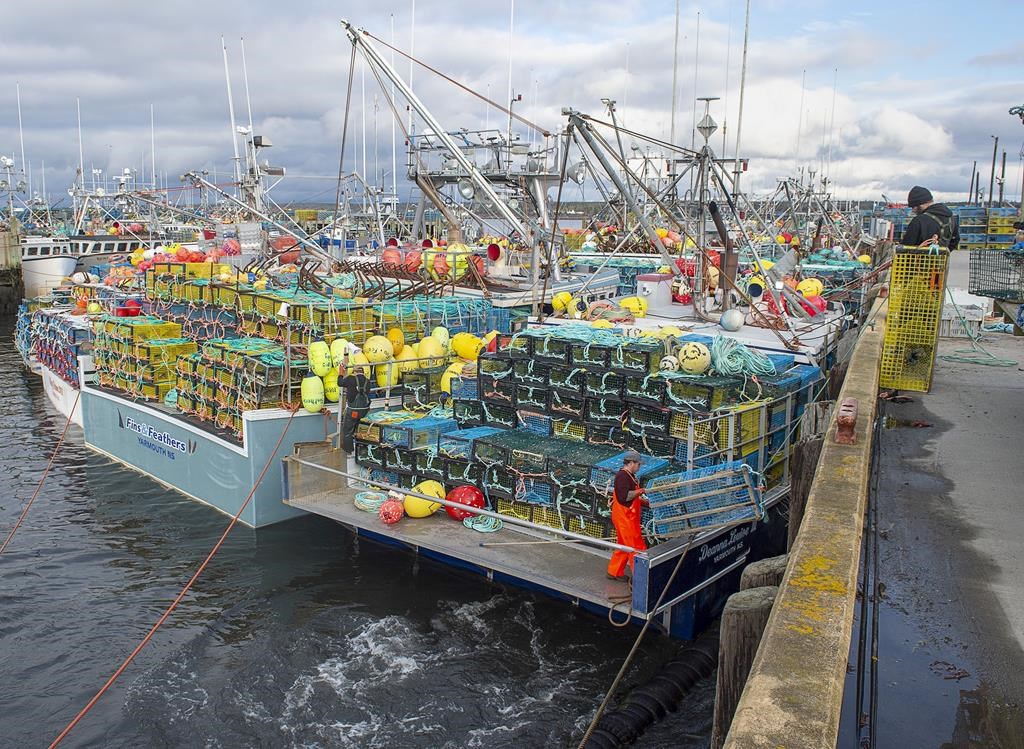The federal Fisheries Department is investigating reports of gear tampering in lobster fishing areas in eastern Nova Scotia.

The department issued a statement late Thursday saying Indigenous fishers taking part in officially sanctioned moderate livelihood fisheries have reported tampering in two fishing areas, as have non-Indigenous commercial fishers.
The lobster fishing areas in question are 26A, which includes the eastern half of the Northumberland Strait, and area 27, which extends from the tip of Cape Breton near Meat Cove to an area on the east side of the island near Garbarus.

Get daily National news
The department’s statement says conservation and protection officers have been deployed to deter further tampering, an offence under the Fisheries Act that can result in a fine of up to $100,000.
The statement says gear tampering “prevents Indigenous harvesters from exercising their treaty rights and providing for their families.”
It goes on to say that Indigenous moderate livelihood fisheries have been authorized in the areas in question, as well as in others, for the past four years.
And the department confirmed it has reissued interim authorizations for this season to the First Nations of Potlotek, Eskasoni, Pictou Landing and We’koqma’q L’nue’kati, where designated members can catch and sell lobster.
“We work together with Indigenous communities to negotiate collaborative approaches … that support community members who want to fish in pursuit of a moderate livelihood, as affirmed in the Supreme Court of Canada’s Marshall decisions,” the department says.
“DFO supports this moderate livelihood fishery, and fishery officers are in the field each day, working with designated community members to make sure they can fish within the conditions of their authorization, and in accordance with the measures set out in their community-developed fishing plans.”
This report by The Canadian Press was first published May 31, 2024.
- Canadians involved in tourist bus crash in Dominican Republic, embassy says
- Ottawa requests use of Omani airspace to assist Canadians in Gulf: Anand
- In London, Poilievre pitches new UK, Australia, New Zealand partnership
- Alberta mulls ditching time switch — again — as B.C. moves to permanent daylight








Comments
Want to discuss? Please read our Commenting Policy first.